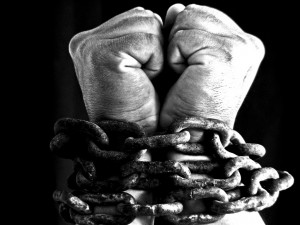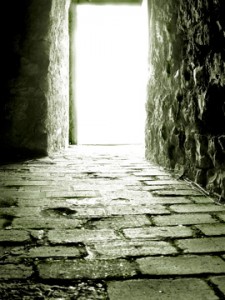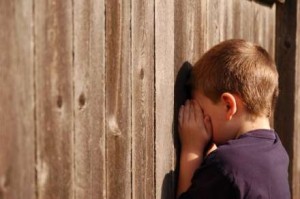(Burning Fences is a small community based in York which is exploring how to sing a new song in the rubble of an old world. I led this as an evening exploring the Trinity for my
fellow ‘sparrows’.)
People enter a small upper room above the city. there is a low table and cushions surrounding it.
On the low table are three bowls each with a question by it and there’s a chalice and plate set up. People are invited to write on scraps of paper responses to the following questions and put them into one of three bowls:
What is your ultimate question?
What is your biggest doubt?
What is missing?
When all are settled drinks for the evening are ordered. This often individualistic action is challenged with the following, seemingly restrictive commands: Everyone is to be responsible for one drink order, it cannot be their own. They, therefore, must take responsibility for another’s order. That other person cannot be the one who is responsible for their own order; the two must find a third who then links to another group…
The evening begins when the drinks order is sent downstairs.
Three people begin by reading the following,
Person 1: In an upper room, not unlike this one, the Lord stood amongst friends and shared.
Person 2: In another upper room, not unlike this one, the Lord stood amongst friends and breathed.
Person 3: In a third upper room, not unlike this one, the Lord stood amongst friends and transformed.
Narrator: Tonight we’re going to explore a mystery through three stories of upper rooms. Three and yet one. It’s one story but three points. It’s three ideas that make up one narrative. Three parts to this one mystery…
Story 1. In a tight, cramped, claustrophobic space, in a darkened corner above the city, the prophet rabbi Jesus sat amongst friends. They would meet regularly and share stories, questions, songs. There was no pattern, no formula, no entry requirement, just a desire. It was not a shared ideology or philosophy that bound them together but a shared desire… to know what it was about this rabbi who had chosen to be with them.
Despite their doubts, despairs, disillusionment, they desired, above all, to discover. To discover a way to be free. Self help, private thoughts, individualism had led to self imprisonment and they were tired of being alone. They were like sparrows desiring a hedge to call home.
Liturgy of the Sparrows
We are the sparrows who are claiming back the hedges.
Response: We are the sparrows that will not be satisfied with twigs.
We are the sparrows that are crying out for our hedges.
Response: We are the sparrows that are weary from singing lonely songs.
In our hedge, where we feel safe again,
Response: we seek our social life back, and the sooner the better.
In our hedge, where we talk things over,
Response: we make decisions, laugh if we want to and sing.
This is our story, this is our song,
and we’ll live it till it’s our reality.
A song about home is shared.
Narrator: Story 1. In a tight, cramped, claustrophobic space, in a darkened corner above the city, the prophet rabbi Jesus showed them how to be a holy community…
The narrator gets a bowl and pours warm water into it. He invites someone to have their hands washed. The act of hand washing is a more culturally applicable version of foot washing in the near east culture of Jesus. There’s an element of cleansing and preparation for food as well as retaining the intimacy of foot washing. As the narrator washes the other’s hands he says,
You have to let me wash your hands in order for me to show you love. If you refused I would not be able to show you my care for you. Allowing me to bless you with this gift is a gift to me. You have allowed me to have a relationship with you. Thank you.
The narrator passes out bowls of water and invites others to sit and receive from one another.
During all of this music is played.
When all have been washed one has left and returned with food and the drinks. Each member should pay more attention for another’s drinks than their own. All are invited to eat.
Who’d like to tell a story of a time when have you felt closest to someone else?
A time of storytelling.
Story 2. In a tight, cramped, claustrophobic space, in a darkened corner of the city, the friends sat. Huddled together in fear. Bereft. Present in body only. Absent in other respect. They had lost. Lost their nerve. Lost the fight. Lost the will. Lost Him. The prophet. Their rabbi.
He had said to them, when he was in the upper room, that he would give everything he had; he would give his life for them. He would not withdraw from the consequences of his love for them. He would be taken and drained of life. He would allow it to happen. He chose to allow it to happen. He chose to allow all people to do what they desired most because he loved.
And now he’s gone. They had lost. The thing that had brought them all together; the person who had called them to each other had left. They had hoped it was forever but he had disappointed. A vacuum now existed in their midst like empty plates where once was food. An absence where once was presence.
A song about loss is shared.
Story 2. In a tight, cramped, claustrophobic space, in a darkened corner of the city, the friends sat and embraced the abyss with all their questions:
One of the bowls that contains the responses to the question ‘What is your ultimate question?’ is passed round and the answers are read out.
The friends sat and embraced the abyss with all their doubts.
The other bowl with the responses to the question ‘What is your biggest doubt?’ is passed round and the answers read out.
The friends sat and embraced the abyss with all their emptiness and lack.
People are invited to read out the responses to the question ‘What is missing?’ from the third bowl.
Story 2. In a tight, cramped, claustrophobic space, in a darkened corner above the city, the prophet rabbi Jesus appeared to his friends. That which was lost had been returned but now a paradox… the friends still felt an absence but it felt like a presence beyond all presences; richer more fuller presence. It was like the last time he was with them but there was a deeper reality to him, to them.
He had been emptied; given all of himself. He who had said that he was God. God had given all things to him and he freely gave it all away to show them how much he loved them. His generosity knew no bounds. He had given everything, even his very self. Now he was back amongst them and showed that He was, in some way, unknowable to them, mysteriously, he was God, eternal, abundant source of all things, of life itself.
“Now do you see?” he said “All that I have I give to you… and I have a lot. I want to be emptied, again and again of all I have so that you have. All that you’re missing I give to you but the real trick is to discover that life is found when you empty of ‘having’ and satisfy the other’s need.”
“God gave to me,” he said “I give to you, but I can’t stay with you in bodily form, it’s too limited. I will return to my home and send to you the key to the Divine store cupboard. He will come and grant you access to the gifts but do not hold onto them for they, like manna in the wilderness will rot if kept in your grasp. Give, give away, give until you have nothing left and your hand will be refilled.”
“This is the secret to community. Each giving until they have nothing but, of course, this dynamic generosity creates from nothing. This is how the universe was built; generous, abundant, emptying love; love that seeks to have nothing so the other will have everything. God the Father showed His love for me by giving me the whole cosmos and more besides he continues to give until there is nothing left to give, when space and time has run out and beyond that. I showed my love to him by giving all I could and I still give… And now I give to you and call you to live with us, participate.”
“You’re all interested in what makes good human community? Humans are made in the image of God and when you live as if that were true, your actions and lives sing of eternity. You’ve dreamt of a place, a way of living that feels like the home you’ve always desired? I have considered your niche needs, disjointed designs and contradictory commands of communal contentment and this is what I offer; an urban landscape sprawling out to scenes of symbiotic existence; spaces of intimacy seeming epic. Small spaces stretch out into space unimaginable.”
“In the centre of this city is a stream sourced from a singular washing space where you can willingly wash away the weeping water from your eyes; wash away all the lies which twist distort and chastise; wash away the pain of missed goodbyes, the long held hurt when a loved one dies, all that contributes to our cries, from the inexpressible silent sighs to the African skin crawling with flies, the countless millions caught in disguise to those imaginations that devise instruments of torture that lead to our demise.
This washing water has supplies for all generations to surmise, from the one who accepts to the one who denies, yes, all are asked to step in and be baptized.”
As the friends looked at the Great Designer’s two dimensional doodles depicting detailed designs for districts of dreams; they were transported from 2D to 3D and they stood at the heart of this great project, this divine concept of collaborated dreams of home. As they scanned the scene with their senses searing with celestial resplendence, they saw it was their terrestrial city with its burnt out building bordered up, barren, broken, brittle skeletons, shells of second rate, suppressed statements of habitations, empty, abandoned, bereft of life. This vacuous void is all they’d envisioned, their vital improvements to the divine construction.
“All these buildings won’t be obstructions.” the rabbi said as He pointed to the destruction. “All of you will be part of this production; we’ll need some more. Can you get introductions? It won’t work if we resort to abductions but paint a portrait of perpetual seduction; Lilting lullabies of love. Meandering melodies of mercy. Holistic harmonies of hope. This is how we will win people to our cause. Sing to them simply of the Son who was sent to your city to speak out against injustice, racist hostility and stubborn statuses. “Sacrifice self” He said. Die to all you think defines, distinguishes, differentiate and divides. Die to all that makes you think ‘me’. That’s not how you are to be, its ‘we’, you see, us constantly, lovingly, eternally relating looking out celebratorily at creation, the manifestation of Our imagination which speaks of salvation. Stand against temptation. Participate in incarnation. Join Our nation.”
They were still in that upper room but now it seemed foreign. The rabbi was gone and they were free. They felt… called, with all creation, to participate in a Divine dance, dwelling with Him, deliberately drawing and deliberating over the debilitated definitions of themselves.
This divine creativity is now innate and it is to participate in a state where every breath is to create because the truth is we, humans can do nothing, we are pathetic, we are fragile, fragmented, foolish and frail. If it was down to us failure would frame our every fumbled attempts at life. But God doesn’t limit His giving of good gifts generously gathering His grace getting offspring and giving, blessing them with boundless benefaction and the ability to beautify the broken, black globe we abide in.
Creativity is the choice to catch the vision of His passionate parade of perpetual pleasure as He paints pictures in the palette of the sky and proclaims praises powerfully in proud oaks. Problem solving, parenthood, pottery, plumbing, all is creative in Papa’s production.
Do we care too much on product and not on process? Capitalism capturing our capability in creation. Yes, creativity is innate, equally distributed, designated, dished out. If we decide to delegate in this divine dynamism we decide to die for it is participation with His soul saving Spirit that gives life. Creativity is cooperating with our curiosity in creation, creating collaborations in community, making mutual memories made in mirth and misery shared. Stories singing through souls, sewing us, sculpting us, shaping us, scripting us into the narrative of the non-conforming Nazarene whose never-ending life and love lulls us into lucid lovers and alighting a light in our hearts, little wisps of wonder wilting the winter inside. All of us part of the process to paint the playground, perform the eternal play and promote partnership in people un-praised but packed with potential.
A song of hope and community is shared.
Story 3. In a tight, cramped, claustrophobic space, in a darkened corner above the city, Simon, who they called ‘Peter’, one of the group was stood amongst outcasts. This foreign group had not been a part of the original group of sparrows in that first upper room. They had gathered from elsewhere but he saw in them that sparrow song. He stood amongst them and remembered the night he had sat with the prophet rabbi Jesus and he had showed them God, divine community, love unadulterated and emptying of gift. Peter stood and spoke, he modelled love as he had known it, pure, from the heart of God Himself. The group were sparrows in a hedge; just for a moment. They sang, they laughed, they shared, they lived the life of communal God right in front of him.
I have shared my stories. I share them till I am empty, bereft.
Keno Charis means ‘emptying of gift’. It is the mystery at the heart of the Trinity; God in community, Father, Son and Holy Spirit; each one giving to the other attempting to be empty of all they possess in order that the other has more but in some mysterious way this creates more. God, the source of all things trying pass on all of it is the secret to life. When we live and participate in this activity we are caught in the basis of life itself and we experience God. Trinity. The Communal heart of creation from the Creator.
Liturgy of the empty and healed
Person 1: I have my music,
I give it to you,
I give it till I’m empty.
Response: We thank you. We love you till you heal.
Person 2: I have my thoughts,
I give them to you,
I give them till I’m empty.
Response: We thank you. We love you till you heal.
Person 3: I have my words,
I give them to you,
I give them till I’m empty.
Response: We thank you. We love you till you heal.
Person 4: I have my voice,
I give it to you,
I give it till I’m empty.
Response: We thank you. We love you till you heal.
Person 5: I have my heart,
I give it to you,
I give it till I’m empty.
Response: We thank you. We love you till you heal.
Person 6: I have my identity,
I share it with you,
I share it till I’m empty.
Response: We thank you. We love you till you heal.
One member of the group leads the following to close,
Find rest, O my soul, in God alone:
Response: my hope comes from Him.
We come this night to the Father,
We come this night to the Son,
We come this night to the Holy Spirit powerful:
Response: We come this night to God.
The Sacred Three
to save
to shield
to surround
the hearth
the home
this night
and every night.
Keep Your people, Lord,
in the arms of Your embrace.
Response: Shelter them under Your wings.
Be their light in darkness.
Response: Be their hope in distress.
Be their calm in anxiety.
Response: Be strength in their weakness.
Be their comfort in pain.
Response: Be their song in the night.
In peace will we lie down, for it is You, O Lord,
Response: You alone who makes us to rest secure.

 Where he came from, neither of them knew. How he got past their captors; who could say? He was either a fraud, one of the warders provoking them for his own amusement; or their captors had fled leaving the cell unguarded; or it was a miracle. None of this mattered much as he walked over to them and spoke.
Where he came from, neither of them knew. How he got past their captors; who could say? He was either a fraud, one of the warders provoking them for his own amusement; or their captors had fled leaving the cell unguarded; or it was a miracle. None of this mattered much as he walked over to them and spoke.
 Through the doors they saw their guards sleeping soundly. It seemed so strange – no – illogical that they could slumber during a rescue mission in the jail they were meant to watch. The whole incident was feeling so mysterious and implausible; a dream with no reason. Yet this man kept leading them down the corridor towards a bright light; the final exit to freedom.
Through the doors they saw their guards sleeping soundly. It seemed so strange – no – illogical that they could slumber during a rescue mission in the jail they were meant to watch. The whole incident was feeling so mysterious and implausible; a dream with no reason. Yet this man kept leading them down the corridor towards a bright light; the final exit to freedom.
 24. What is an encounter with the ‘hidden’ God like?
24. What is an encounter with the ‘hidden’ God like?


